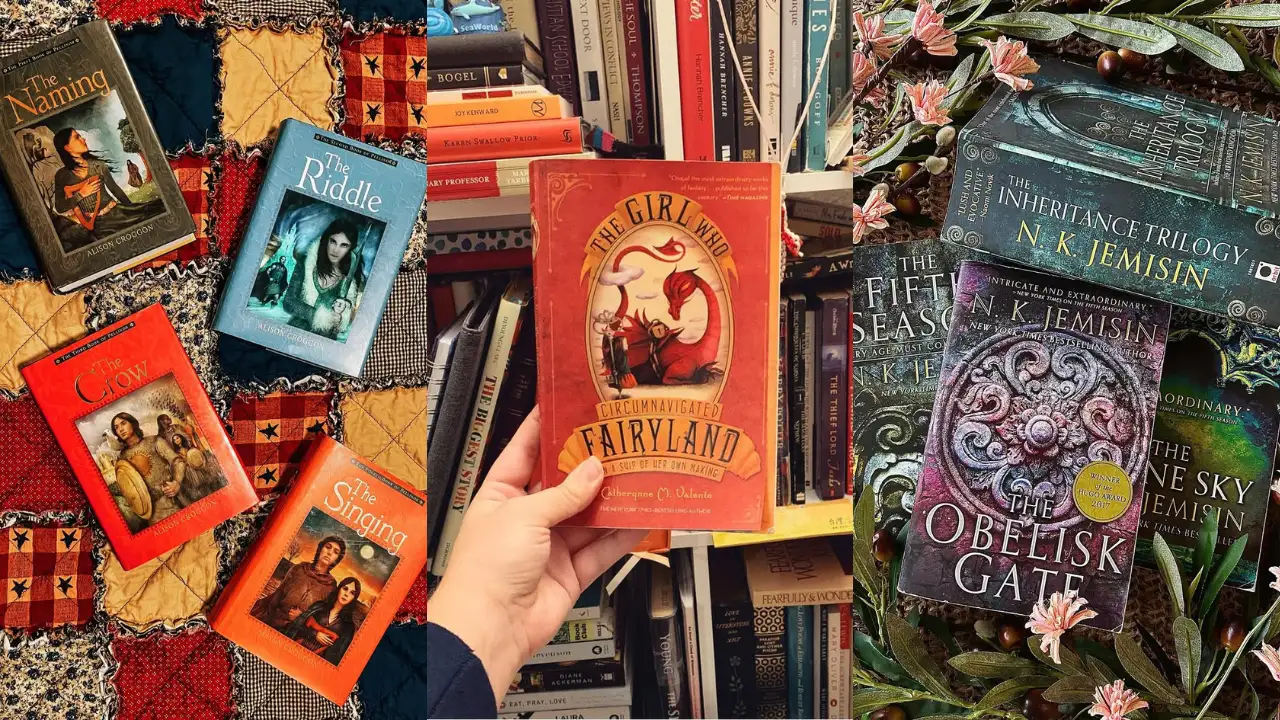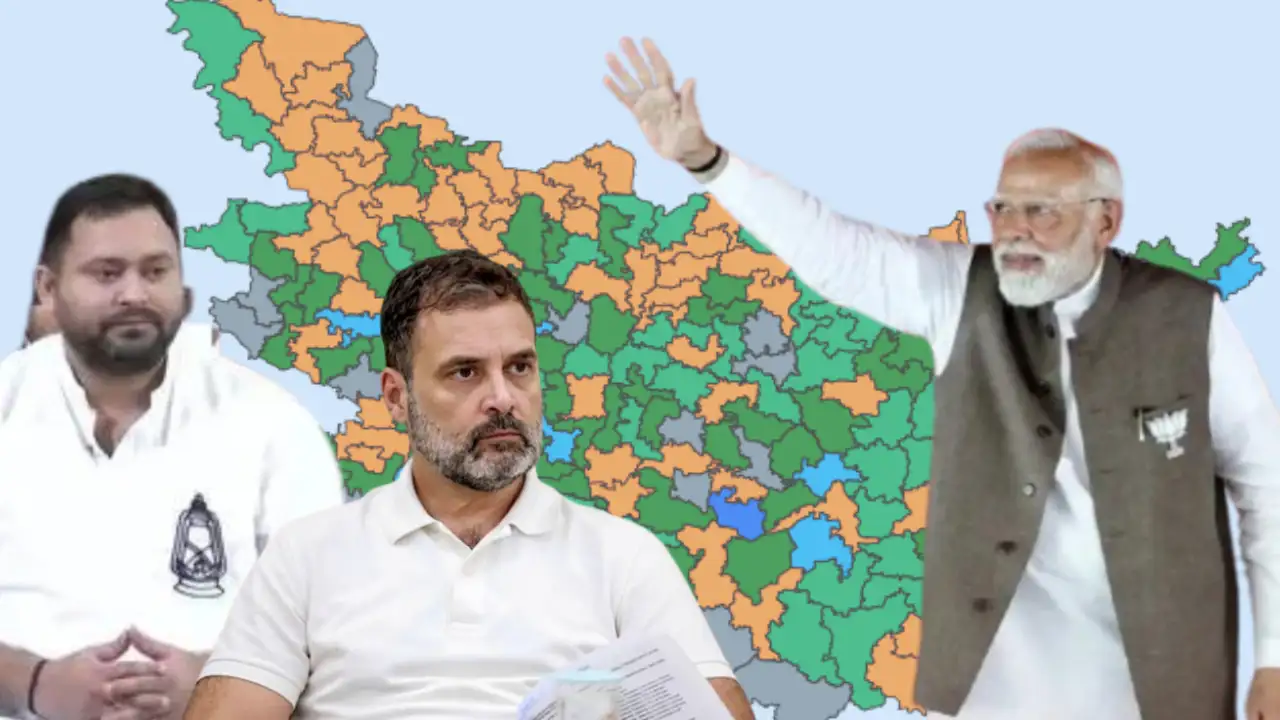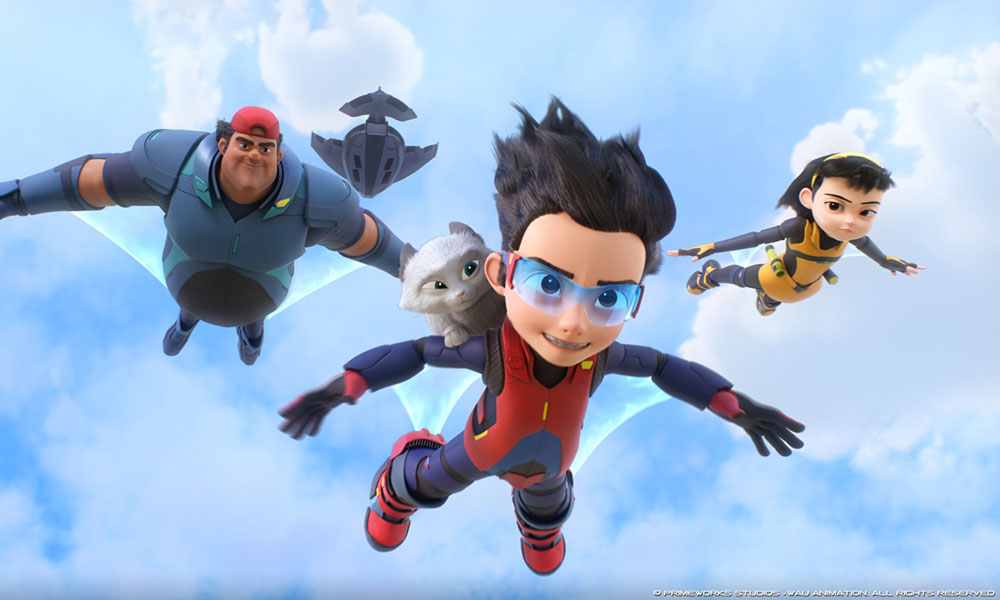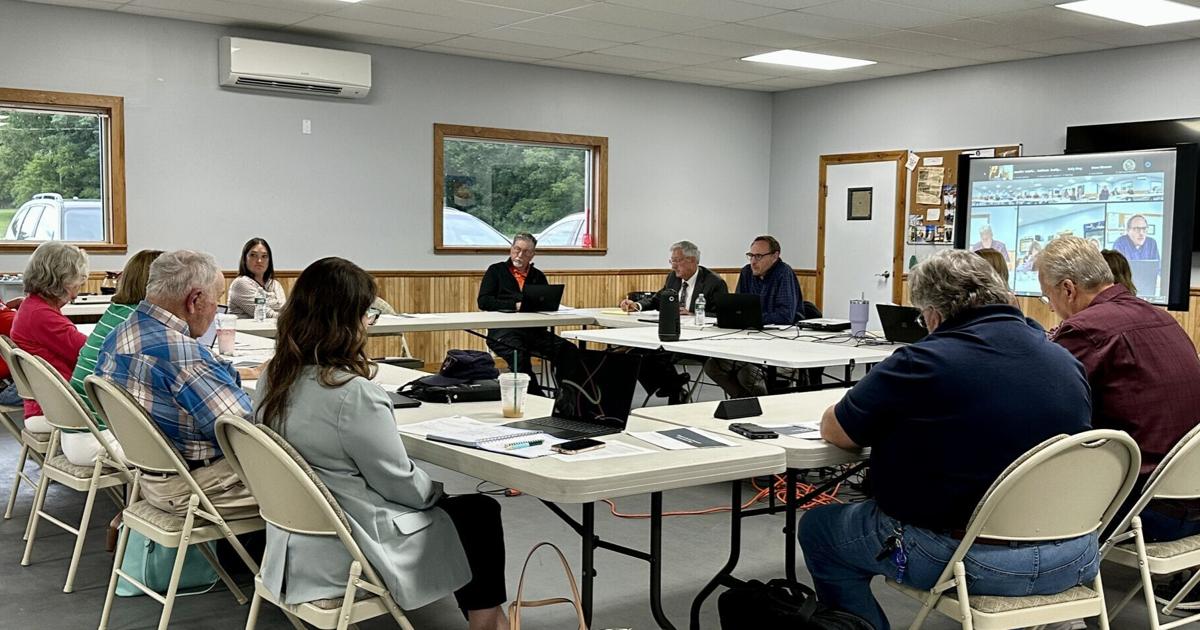Copyright timesnownews

Remember the first time you stepped through the wardrobe into Narnia? That breathless moment when snow crunched under Lucy's feet and a lamppost glowed in an impossible forest? If you've been searching for that same magic since closing the final page of 'The Last Battle', you're not alone. The world C.S. Lewis created didn't just tell a story. It opened a door to something bigger, a place where courage matters, friendships run deeper than blood, and every choice carries weight. But here's the beautiful truth: Narnia wasn't the only magical world waiting to be discovered. Countless authors have built their own wardrobes, their own secret passages into realms just as rich, just as transformative. These ten fantasy epics carry that same spark, that same ability to make you believe in something more.,Also Read: 10 Fantasy Epics Perfect for Fans of The Lord of the Rings Trilogy ,1. The Misewa Saga by David A. Robertson,,An Anishinaabe author creates a portal fantasy series where a Cree girl named Morgan travels to Misewa, a magical world drawn from Indigenous stories and traditions. David Robertson blends contemporary life with Cree mythology as Morgan and her classmates discover a portal in an attic, entering a world where animals speak, seasons hold power, and creatures from Indigenous legend are real. The series explores themes of identity, belonging, and environmental care while centring Indigenous perspectives in the fantasy genre dominated by European influences., ,2. The Underland Chronicles by Suzanne Collins,,Before creating 'The Hunger Games', Suzanne Collins wrote a middle-grade series about an eleven-year-old Gregor who falls through a grate in his New York apartment building into the Underland, a vast subterranean realm. Collins creates a complete underground civilisation where humans, giant rats, bats, cockroaches, and spiders have complex political relationships and ancient prophecies predicting war. Gregor must navigate alliances and conflicts while searching for his missing father, discovering he may be the warrior prophesied to save or destroy this world.,3. The Inheritance Trilogy by N. K. Jemisin,,A fantasy trilogy begins when Yeine, a member of a conquered people, is summoned to the sky city and named heir to the ruling family, discovering she is a pawn in conflicts between imprisoned gods and their mortal masters. N.K. Jemisin subverts epic fantasy conventions, centring a Black woman protagonist in a world where gods are characters with agendas, where the ruling family maintains power through cruelty, and where clear heroes are absent. The series examines colonialism, slavery, and how power corrupts through mythology, where gods were enslaved and their worshippers oppressed.,4. Crown of Stars Series by Kate Elliott,An epic fantasy series follows multiple characters, including a bastard son and a sorceress, through a medieval-inspired world facing an apocalyptic threat as ancient magic returns. Kate Elliott creates dense, complex fantasy examining power, religion, gender, and colonialism through interwoven storylines spanning continents. The series depicts political machinations, religious conflicts, and personal relationships with nuance, refusing simple good versus evil while maintaining epic scope. Characters navigate court intrigue, battlefield tactics, and magical transformations as the world faces cataclysm from the returning Ashioi people displaced centuries earlier.,5. Wayward Children Series by Seanan McGuire,,A series of novellas about children who found doorways to magical worlds like Narnia but were then forced back to ordinary reality and sent to Eleanor West's Home for Wayward Children, a boarding school for those who cannot adjust after experiencing wonder. Seanan McGuire explores what happens after portal fantasy ends, examining the trauma of losing access to worlds where you belonged and the difficulty of convincing others your experience was real. Each book focuses on different students' backstories, revealing the diverse magical worlds they visited, from candy-colored nonsense lands to dark gothic underworlds to logical mathematical realms., ,6. Red Shift by Alan Garner,An experimental fantasy connects three time periods in the same English location as characters across Roman Britain, the English Civil War, and modern 1970s experience, echoing conflicts and possibly a mystical connection through a stone axe. Alan Garner writes elliptical, challenging prose that rewards careful reading, showing how place holds memory and how emotional patterns repeat across centuries. The modern storyline follows teenage romance while historical sections depict violence and displacement, suggesting continuity of human experience across time.,7. The Girl Who Circumnavigated Fairyland in a Ship of Her Own Making by Catherynne M. Valente,,A girl named September is recruited by the Green Wind to save Fairyland from the tyrannical Marquess, beginning adventures with companions including a Wyvern and a Marid. Catherynne Valente writes lush, lyrical prose full of wordplay and literary allusions as September navigates Fairyland's nonsensical logic, political intrigue, and personal growth. The book combines Alice in Wonderland's playfulness with a deeper examination of power, responsibility, and how even well-intentioned rule can become oppression.,8. The Riyria Chronicles by Michael J. Sullivan,,A fantasy series follows two thieves, Royce and Hadrian, through adventures revealing how their partnership began before the events of Sullivan's Riyria Revelations series. Michael Sullivan creates accessible epic fantasy with humour, friendship, and clever plotting as the mismatched pair, one cynical and deadly, the other idealistic and skilled, take on jobs that entangle them in larger conflicts. The books blend heist stories, political intrigue, and classic fantasy quests while developing the relationship between protagonists who become brothers through shared danger.,9. The Farseer Trilogy by Robin Hobb,,An epic fantasy follows FitzChivalry Farseer, a royal bastard trained as an assassin, through political intrigue and magical threats in a medieval-inspired kingdom. Robin Hobb creates an intimate character study within an epic fantasy framework as Fitz serves his royal family while navigating court politics, forbidden magic, and his conflicted identity as bastard prince and trained killer. The trilogy explores duty versus personal desire, the costs of loyalty, and how political decisions affect ordinary lives. Hobb writes with psychological depth about trauma, love, and sacrifice while building a richly detailed world with magic systems, including the Skill linking minds and the Wit bonding humans and animals., ,10. The Books of Pellinor by Alison Croggon,A fantasy series follows Maerad, a slave girl who discovers she possesses the powerful Gift of the Bards, beginning her journey to fulfil prophecy and defeat the Nameless One threatening to destroy her world. Alison Croggon creates epic fantasy with detailed world-building, invented languages, and mythology spanning centuries as Maerad travels across kingdoms, learning her powers while pursued by dark forces. The series balances action, romance, and political intrigue while exploring themes of destiny, identity, and the responsibility that comes with power.,Also Read: 10 Epic Fantasy Book Series You’ll Wish Never Ended,You've travelled through ten extraordinary worlds, each one offering its own brand of magic and meaning. From talking animals to hidden kingdoms, from epic battles to quiet moments of sacrifice, these stories carry forward everything that made Narnia unforgettable. They remind us why we fell in love with fantasy in the first place. These aren't just escapist adventures. They're mirrors held up to our own world, showing us what bravery looks like, what friendship costs, and why hope matters even in the darkest moments. C.S. Lewis knew that the best fantasy doesn't help us run away from reality. It helps us face it with fresh eyes and stronger hearts. So as you close this list and pick your next read, remember what Lucy learned in that snowy forest: the greatest adventures often begin with a single curious step. Your wardrobe is waiting. All you have to do is open it.



